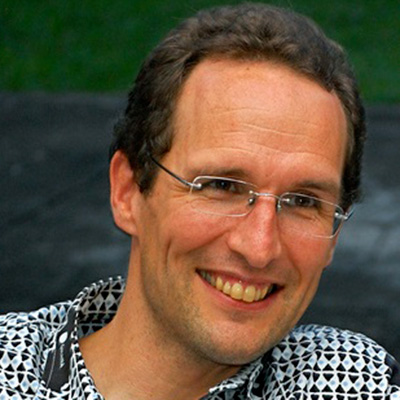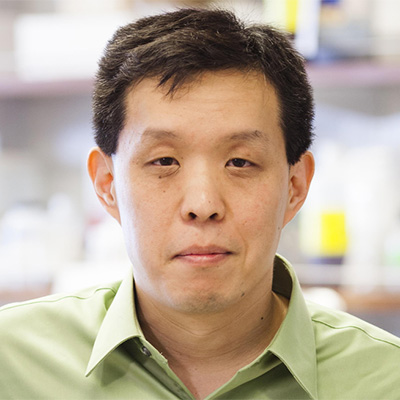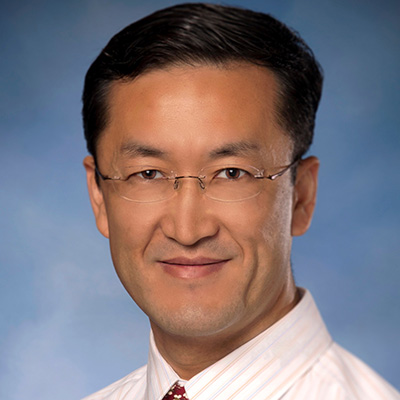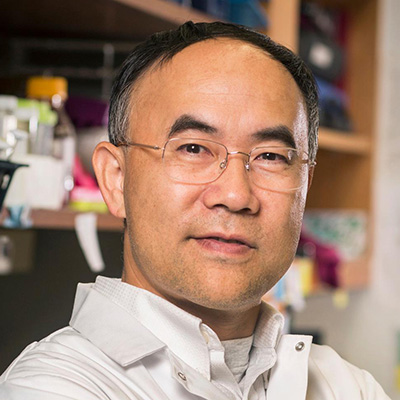Microbiology academy elects 2024 fellows
The American Academy of Microbiology has elected 65 fellows to its class of 2024. Six of this year’s AAM fellows are American Society for Biochemistry and Molecular Biology members: Ronald Breaker, Kirk Deitsch, Kyu Rhee, Hao Wu, Li Wu and Pei Zhou. AAM is an honorific leadership group of the American Society for Microbiology and elects fellows annually through peer review.






Breaker is the chair of the molecular biophysics and biochemistry department at Yale University, where he is also a professor of molecular, cellular and developmental biology. His lab investigates noncoding RNAs in bacteria, with particular interest in ribozymes, which catalyze chemical reactions, and riboswitches, which change conformation in response to binding of specific molecules. Breaker’s lab conducted the first experimental validations of riboswitches and has studied their ability to act as sensors and regulate gene expression. Breaker was the 2016 recipient of the ASBMB–Merck Award. His other honors include election to the National Academy of Sciences, the American Association for the Advancement of Science and the American Academy of Arts and Sciences.
Deitsch is a professor of microbiology and immunology at Weill Cornell Medicine. His lab focuses on Plasmodium falciparum, the pathogen that causes malaria. They aim to understand how the parasites avoid the immune system of their host via gene regulation and antigenic variation. The lab also studies genome plasticity in P. falciparum. In 2022, Deitsch received the Teaching and Mentorship Award from the Weill Cornell Graduate School.
Rhee is a professor of medicine at Weill Cornell Medicine. The Rhee lab pioneered the development and application of metabolomic technologies to conduct systems-level biochemical studies of Mycobacterium tuberculosis, the causative agent of tuberculosis. The lab applied these technologies to enable studies of the intrabacterial pharmacology of drugs within Mtb and establish a new paradigm in rational anti-infective drug development. Rhee is also a founding signatory of the Bill and Melinda Gates Foundation TB Drug Accelerator, recipient of a Harrington Discovery Institute Scholar-Innovator award and a member of the American Association of Physicians.
Hao Wu is a professor of structural biology, biological chemistry and molecular pharmacology at Harvard Medical School and Boston Children’s Hospital. Her lab uses cryogenic electron microscopy and other biophysical methods to understand molecular complexes involved in innate immunity, including signalosomes and pore-forming complexes like gasdermin D. She is a fellow of the Biophysical Society, AAA&S and AAAS, and an elected member of the National Academy of Sciences. Wu was awarded the 2024 ASBMB Bert and Natalie Vallee Award in Biomedical Science and the Royal Swedish Academy of Sciences’ 2024 Gregori Aminoff Prize.
Li Wu is a professor and department chair of microbiology and immunology at the University of Iowa Carver College of Medicine. His lab studies the mechanisms of HIV restriction by the host protein SAMHD1, an enzyme that regulates deoxynucleotide triphosphate homeostasis and maintains genomic stability. In addition, the lab explores the epitranscriptomic regulation of HIV and SARS-CoV-2 replication in human cells. In 2013, he was selected for the Zoetis Award for Research Excellence, and in 2015 he received the Charles C. Capen Teaching Excellence Award for Graduate Education, both from Ohio State University. In 2017, Li Wu was elected a fellow of AAAS.
Zhou is a professor of biochemistry and chemistry at Duke University School of Medicine. His research interests include Gram-negative bacterial cell envelope biogenesis and inhibition, microbe–host interaction and host immunity, translesion DNA synthesis and development of novel antibiotics. Zhou was a recipient of the Whitehead Scholar Award in 2001, Duke Chancellor’s Discovery Award in 2016, Duke Clinical and Translational Science Institute Translational Accelerator Awards in 2015 and 2019, and the SER-CAT Outstanding Science Award in 2020.
According to AAM, there are over 2,600 fellows in the academy, representing all subspecialties of the microbial sciences, who are involved in basic and applied research, teaching, public health, industry and government service. Of the 2024 fellows, 25% are women, and 23% of the U.S. fellows are from historically underrepresented ethnic groups.
Enjoy reading ASBMB Today?
Become a member to receive the print edition four times a year and the digital edition monthly.
Learn moreGet the latest from ASBMB Today
Enter your email address, and we’ll send you a weekly email with recent articles, interviews and more.
Latest in People
People highlights or most popular articles

2026 ASBMB election results
Meet the new Council members and Nominating Committee member.

Simcox wins SACNAS mentorship award
She was recognized for her sustained excellence in mentorship and was honored at SACNAS’ 2025 National Conference.

From humble beginnings to unlocking lysosomal secrets
Monther Abu–Remaileh will receive the ASBMB’s 2026 Walter A. Shaw Young Investigator Award in Lipid Research at the ASBMB Annual Meeting, March 7-10 in Washington, D.C.

Chemistry meets biology to thwart parasites
Margaret Phillips will receive the Alice and C. C. Wang Award in Molecular Parasitology at the ASBMB Annual Meeting, March 7-10 in Washington, D.C.

ASBMB announces 2026 JBC/Tabor awardees
The seven awardees are first authors of outstanding papers published in 2025 in the Journal of Biological Chemistry.

Decoding how bacteria flip host’s molecular switches
Kim Orth will receive the Earl and Thressa Stadtman Distinguished Scientists Award at the ASBMB Annual Meeting, March 7–10, just outside of Washington, D.C.
